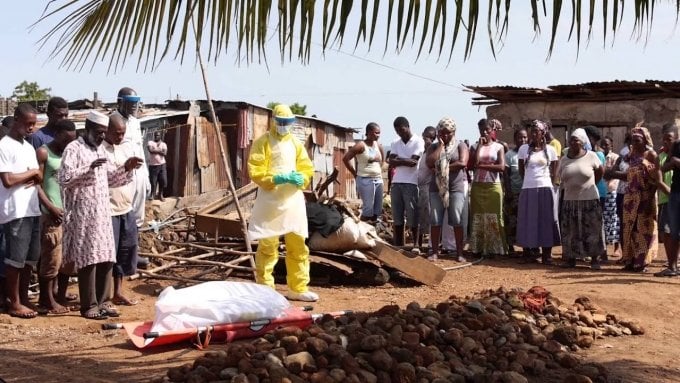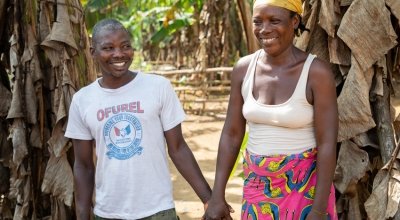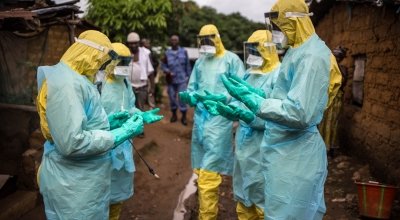
Read our 2023 annual report

Knowledge Hub
Dignity among the chaos of an Ebola outbreak
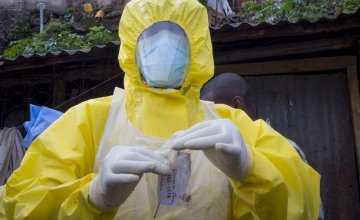
As the death toll rises in west Africa, we're tackling the immediate effects of the Ebola crisis while also highlighting the quieter impact of the tragedy in people’s day-to-day lives.
Here are some voices of hope and resilience from those living and working in Freetown, Sierra Leone.
Working for humanity
Daniel Sewah, a married man with three children, is the chlorine sprayer for Burial Team 7, one of the ten burial teams that Concern is managing in Freetown.
It’s a dangerous role that carries the added burden of social stigma.
Many burial team members are experiencing eviction and isolation from their communities as the outbreak ravages on, leaving a culture of fear in its wake, but this does not deter Daniel.
"I am not working for myself – I am working for my country, for humanity," he insists.
Training frontline health workers
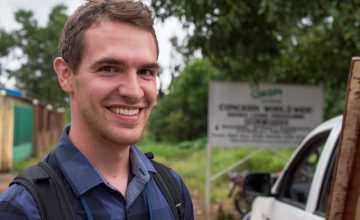
Joe Jasperse, a native of Allendale, Michigan, is part of the Ebola response management team for Concern in Sierra Leone.
He's working to provide proper training for health workers.
This plays a key role in breaking the cycle of transmission of Ebola, as it limits the potential risk of infection for staff and other patients.
Joe says: "Frontline health workers have little or no training in what we call IPC – infection prevention and control.
"This means that if a potentially infectious patient arrives at a health facility, there is a real danger to both the staff and other patients. We have set up a training service and are sourcing proper protection equipment for a couple of hundred local health centers."
Education on air
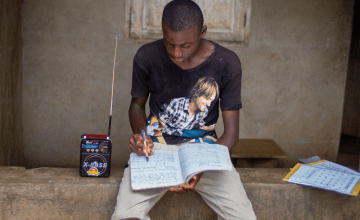
It’s not only health systems that are experiencing the burden of the Ebola virus.
In an attempt to stem the spread of the disease, a government order has resulted in the closing of many schools.
Children like Mada Karimu now rely on a basic radio service of three classes a day to maintain their education.
"They closed my school on July 18th," Mada tells us.
"I am so sad, but they say it might re-open it in January and that gives me hope."
As it may be some time before schools reopen, we’re working with the government to expand and improve upon the current radio education service so that children do not miss out on their right to education.
Your support
Your support is helping us to provide vital services such as protective equipment and training for health workers, clean water supplies for treatment centres, support for families in quarantine, and safe and dignified burial services here in Freetown, Sierra Leone.
Together we can break the cycle of transmission of Ebola in west Africa.



